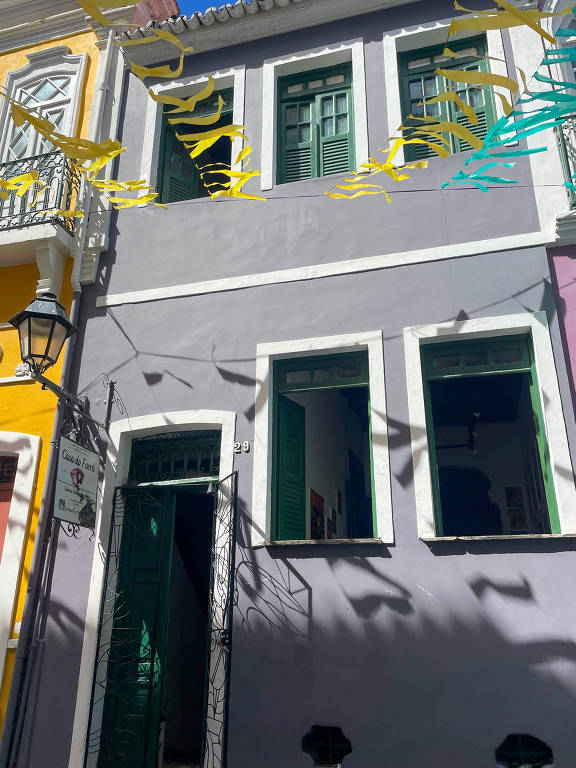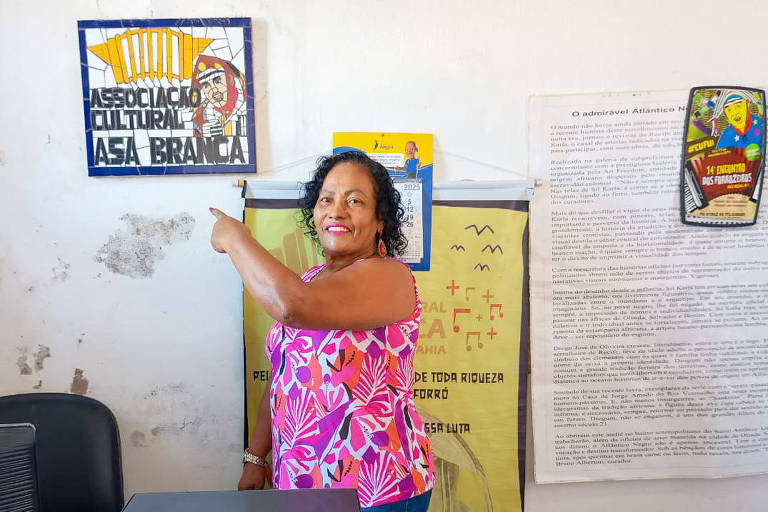Salvador will have the first free school to train forró dancers

In the heart of Pelourinho, a consecrated territory of samba-reggae and axé, a two-story house adorned with São João ribbons prepares to give way to another rhythm. It is there, at Casa do Forró , headquarters of the Asa Branca Cultural Association of Forrozeiros da Bahia , that the first public school of traditional forró, or pé-de-serra, will be inaugurated in Salvador .
The opening is scheduled for July 14, and the creator of the initiative is Marizete Nascimento, 77, a retired accountant and one of the main organizers of the forró movement in the capital. "This face-to-face, belly-to-belly forró is in danger of disappearing, but we are keeping an eye on it, taking actions to preserve this culture," she says.

The school will offer practical lessons in accordion, zabumba, triangle, and tambourine for 32 students, divided into accordion and percussion groups. Classes will be led by four instructors, focusing on promoting traditional forró.
Already in the inaugural class, spots were sold out. There were 16 for accordion and 16 for percussion, filled by people of diverse backgrounds, most over 40. "There were so many interested people that we're going to prioritize those who already have some initiation, those who have an instrument and want to improve," he explains. Classes will be in-person and will take place three times a week.
Despite being free, the association encourages students to become members and contribute a symbolic monthly fee of R$30, which is used to help maintain the space. "Some people ask, 'Can I help in any way?' Yes. We support ourselves with this contribution, but less than 15% of members pay. So, I cover everything I can with my retirement."
To enroll in the school, however, there is no requirement for payment or previous musical experience. "The requirement is just one: to really like forró," says Marizete.
An accountant by training and retired from the Federal University of Bahia, she decided in 2020 to move the association's headquarters to Pelourinho, seeking greater visibility for traditional forró. Using her own funds, she rented the property, renovated the space, and began hosting musicians and supporters. "I bought a computer, a printer, a chair, everything. I've already raised my daughters. Today, my retirement is to do whatever I want. And what I want is this here."
The school's creation was made possible by an amendment from state representative Fátima Nunes (Workers' Party), also a forró and sertaneja singer. The R$200,000 was allocated via the Bahia State Department of Culture and used to purchase instruments, pay teachers, and hire staff to run the school. "Now I need new support. There's no point in planting and then not being able to maintain it."
The Asa Branca Association was created in 2007, in Simões Filho, by a group of forró dancers who feared seeing the rhythm lose ground. Marizete took over as president in 2010 and has never left. "Deep down, I don't even want to leave. It was when I joined that things started to move. Now we are reaping what we sowed back then."
A native of Quijingue, in the backlands of Bahia, she grew up listening to forró on the radio and at country festivals. "There was no electricity, no running water. We got water from horse tanks. But there was forró. It was the first music I ever heard—and I fell in love."
Marizete's activism began in the 1980s, after her marriage ended. She began frequenting the Uauá restaurant in Itapuã, one of the few forró venues in Salvador. "Back then, some people were embarrassed to say they went to forró. It was true resistance. I went every Friday and Saturday. When someone wanted to book a forró dancer, they'd call and recommend me. From then on, I never stopped."

Among his proudest achievements are the association's recognition as a public utility by the Bahia State Legislative Assembly and its certification as a Cultural Center by the Ministry of Culture. "This isn't just a place where forró music plays. This is where we develop public policy for forró. Where we take action to ensure it doesn't die out."
For Marizete, the school is another step in this process. "We're planting a seed. We already have young people playing accordion and percussion, but before it was difficult. Those who learned stayed home with their families, unaware that they could become professionals. Not anymore. Now we're going to train true forro musicians."
uol





